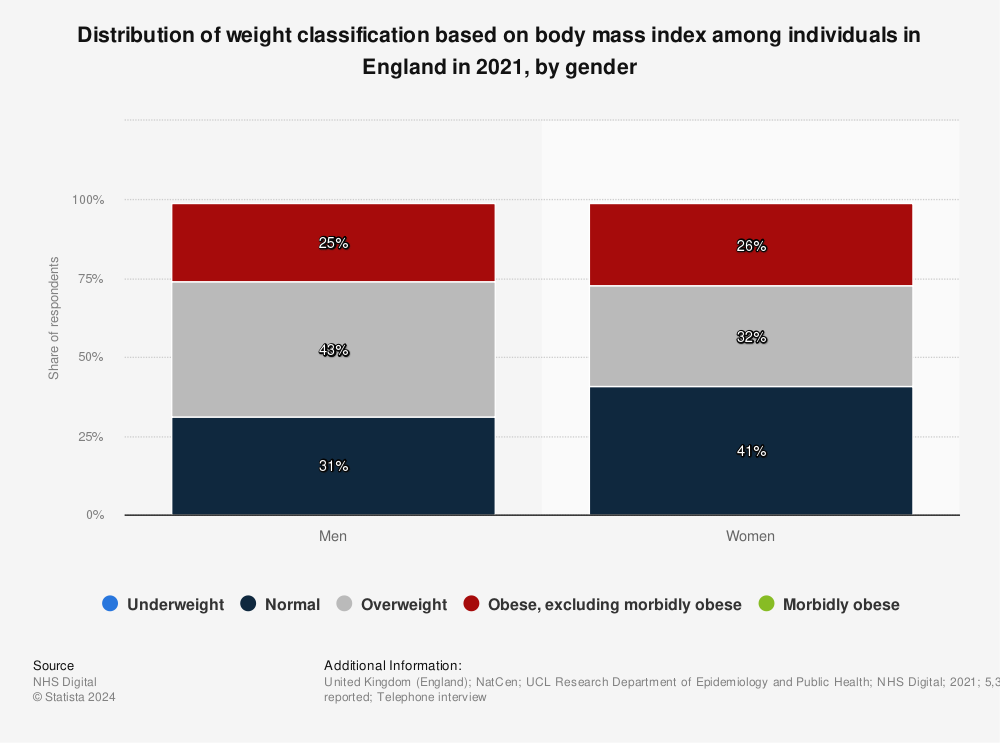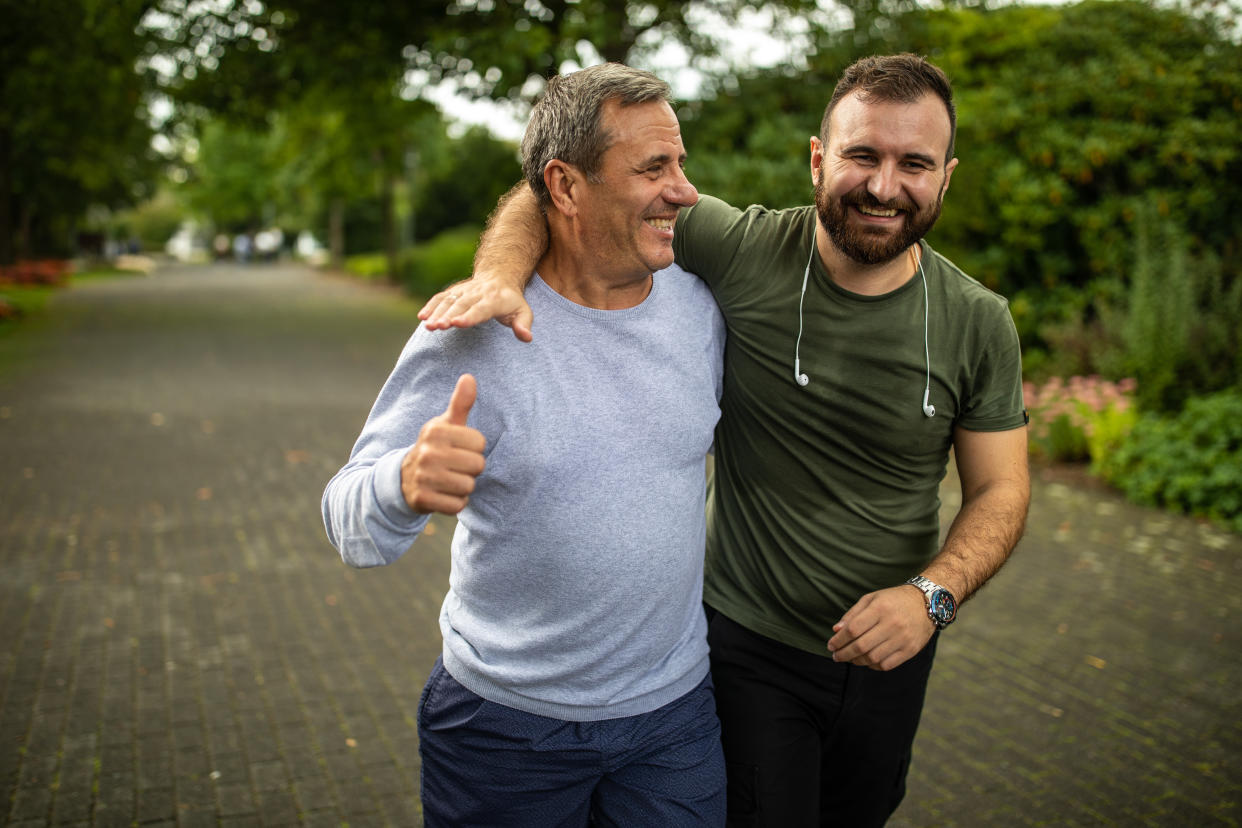Why men are more prone to 'happy fat' after marriage

The happier we are, the more relaxed we become, so we’re bound to ‘let ourselves go’ in a happy, fulfilling marriage.
But a new study has found that men are more prone to letting diet and exercise slide after getting married compared to women.
In the first five years of wedded bliss, male partners tend to see the most weight gain as they eat more and exercise less, according to researchers from China.
They added that marriage has a “significant effect” on the BMI scores of male partners, with an additional 5.2% of men becoming overweight after marriage. Obesity rates among newly married men also increased by 2.5%.
In contrast, the study, published in Economics & Human Biology, found there was no “clear trend for female BMI after marriage”.
Shiwen Quan, of the Chinese Academy of Social Science, told the journal: “This phenomenon, commonly referred to as ‘happy fat’, has been substantiated by numerous cohort studies conducted in developed Western countries.

“After tying the knot, men often exercise less and eat more, and this leads to a higher BMI.
“Men are facing a significant risk of obesity as they age, so after marriage, it’s important they don’t ‘let themselves go’ by maintaining healthy eating habits and exercising regularly.”
In England, research shows that an estimated 25.9% of adults are obese, with a further 37.9% overweight, but not obese. Men are more likely than women to be overweight or obese (68.6% of men vs 59% of women).
The Chinese study reinforces previous studies on the subject. In 2017, a study by researchers at the University of Bath’s School of Management found that married men have a higher BMI than their non-married counterparts.
Having children exacerbates the issue, as men also tend to gain weight in the early years after childbirth.
Dr Joanna Syrda, business economist in the School of Management, said at the time: “It’s useful for individuals to understand which social factors may influence weight gain, especially common ones such as marriage and parenthood, so that they can make informed decisions about their health and wellbeing.
“For married men who want to avoid BMI increases, that will mean being mindful of their own changing motivation, behaviour and eating habits.”

Tips to stay motivated and get into an exercise routine
It doesn’t matter if you’re a newlywed or you’ve been married for years - the importance of exercising regularly and sticking to a healthy, balanced diet is key to maintaining a healthy lifestyle.
A YouGov survey showed that more than half (56%) of Britons want to do more exercise or improve their fitness in 2024, but a separate study found that four in five people struggle to exercise, particularly during the winter months.
Staying motivated to get into an exercise routine and stick to it can be difficult, but it’s not impossible. As part of a collaboration with Next and Nike, personal trainer and online coach Ben Teasdale shared his top tips:
Set goals
One of the key ways to maintain motivation is to set yourself a realistic goal within a relatively short time frame (eg. eight to 12 weeks). Having an achievable goal to aim for will make you far more inclined to stay consistent with your training.
Accountability partner
Find yourself a friend or family member that also likes the same form of exercise and work together to keep yourselves motivated. It doesn’t matter if you have different abilities or goals, just keeping each other accountable can be really beneficial.

Morning workouts
In the winter months, it’s especially difficult to motivate yourself on an evening when the days are shorter. I’d recommend exercising earlier in the day if you can, as it’s very tempting to talk yourself out of exercising if you’re doing it after work when it’s dark and you feel tired.
The right fuel
Focusing on a high protein, mostly clean diet can really help you to feel good mentally and physically, which will help you stay motivated. I recommend sticking to an 80/20 rule - eating nutritious, healthy foods 80% of the time and allowing yourself to eat foods you love around 20% of the time so that you don’t feel restricted.
Motivation comes and goes
There will be some days that you feel less motivated. If you really want to maintain an active lifestyle, it’s about being disciplined and forming good habits. On the days where you feel less motivated to exercise, but actually manage to get your workout done, give yourself praise.
Progress check
Keep a logbook of your exercise to keep track of your progress, so make notes of the days where you weren’t feeling it but still showed up. This can help reinforce the good habit and make you more likely to continue.
Read more about sex and relationships:
Can an emotional connection be more powerful than physical attraction? (Yahoo Life UK, 5-min read)
'Weekend warrior' workouts just as good as daily exercise, study shows (Yahoo Life UK, 3-min read)
Why more than half of women in the UK are stopping exercise (Yahoo Life UK, 4-min read)


